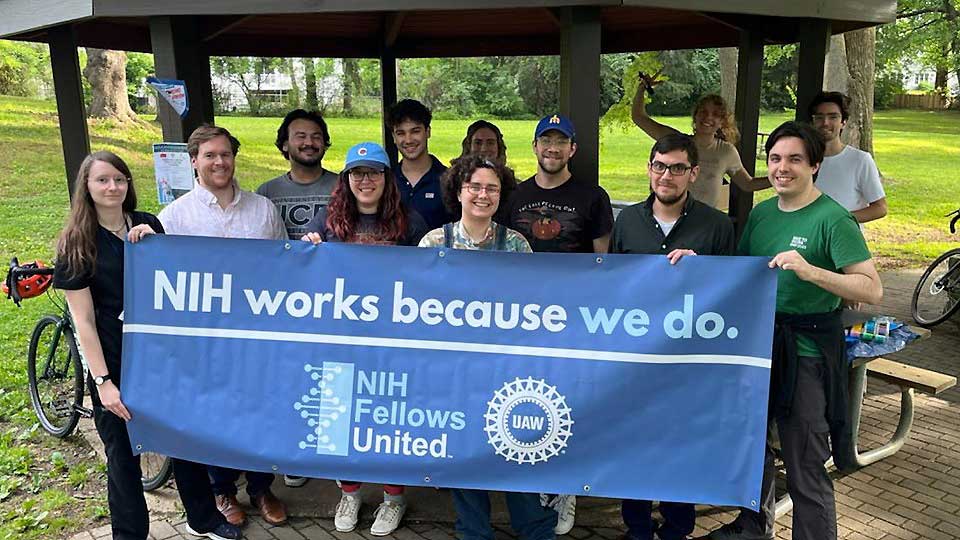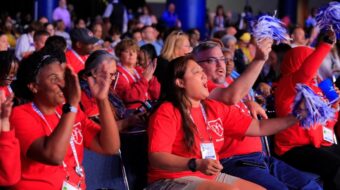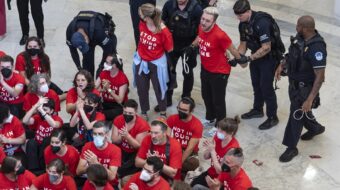
BETHESDA, Md. (PAI)—Some 4,800 research fellows at the National Institutes of Health—researchers and postdocs in a wide range of scientific fields—will vote soon on whether to unionize with the United Auto Workers.
If the NIH Fellows United union wins, the workers would join tens of thousands of other unionized post-doctoral workers nationwide, almost all at colleges and universities. They’ve organized in recent years with UAW, the Teachers, the Office and Professional Employees, The News Guild, the Teamsters, and other unions. Low stipends, few benefits, and no job security have been key to those drives.
NIH Fellows United unveiled its organizing drive on June 1, and NIH bosses initially objected to their right to unionize, just as university honchos have fought for years against unionizing grad student research assistants, researchers, and teaching assistants. Like those workers, the NIH fellows, who are just starting their scientific careers, are mostly in their 20s.
But NIH dropped its objections on Aug. 14, clearing the way for the vote, at an unspecified date. News reports said NIH Fellows United had turned in 3,000 signed union recognition election cards to the Federal Labor Relations Authority, the small agency that runs labor-management relations for the federal workforce.
“I am excited the NIH has chosen to do the right thing,” Marjorie Levinstein, a neuropharmacology postdoc at the National Institute on Drug Abuse and an organizer for the union, told Science magazine.
Key issues in the organizing drive, at least according to statements from individual fellows posted on the union website, include pay, recognition, and transparency.
“I study the mechanisms that control DNA replication and how they can be targeted for cancer treatment,” said Nana Kusi, a post-baccalaureate fellow at the National Cancer Institute. “I believe strongly in the principles of collective bargaining and feel the union will bring greater transparency, equity, and camaraderie to the NIH.”
“My time working with NIH Fellows United has shown me the power in organizing scientific researchers,” said Isabella Jacobsen, a two-year baccalaureate fellow. “As I applied and was accepted into graduate programs, the presence and structure of graduate student unions strongly swayed my eventual decision on which program to attend. I’m passionate about organizing young scientists so all future generations of scientists can benefit from fair and equal pay and the ability to curb workplace bullying and harassment.”
“I believe fellows deserve a voice in making decisions directly impacting their workplace well-being and compensation,” said Samantha Crane, a fellow at the National Institute for Allergies and Infectious Diseases—the NIH institute that conducted and sponsored research into fighting the coronavirus. “As the NIH is a center of world-renowned science, it must lead by example to improve conditions for fellows of all levels to further scientific progress across the world.”












Comments